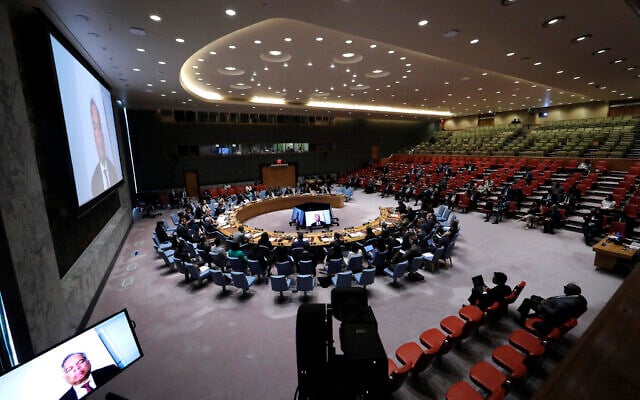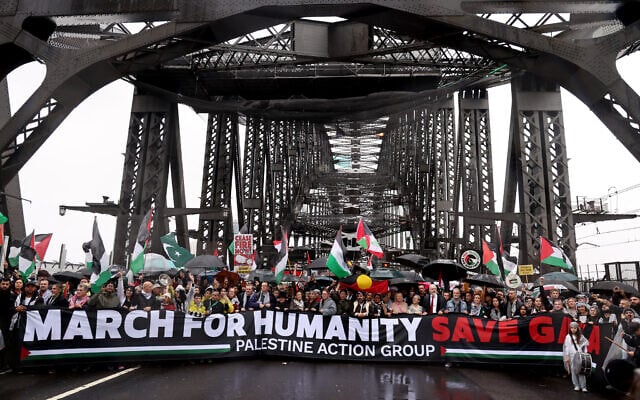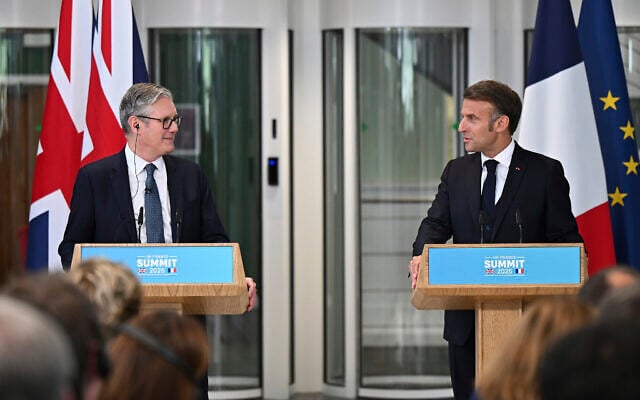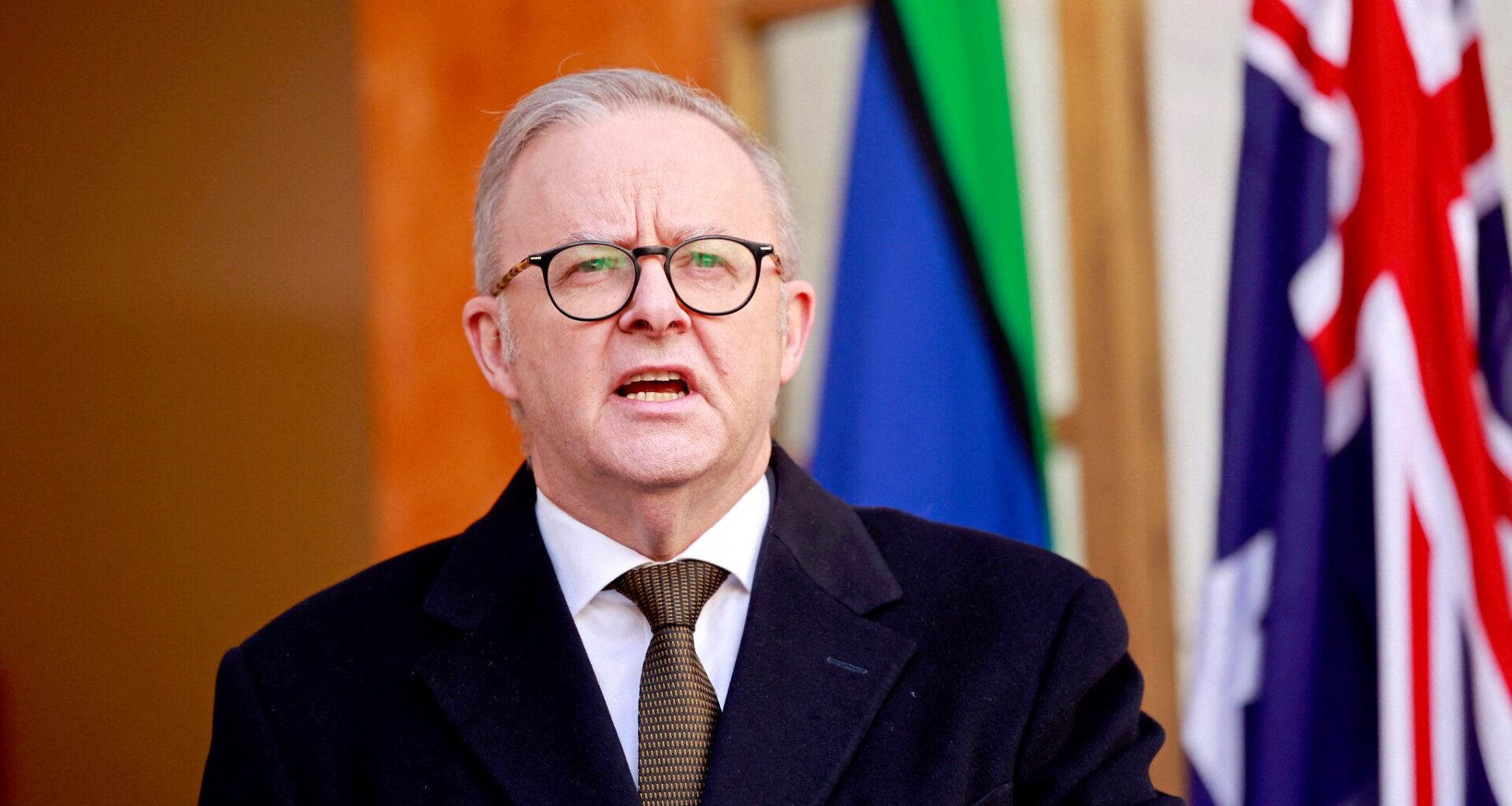Australia will recognize a Palestinian state in September at the United Nations General Assembly, Prime Minister Anthony Albanese announced Monday, in a quick about-face after saying two weeks ago that he didn’t plan to imminently make such a move.
Shortly after Albanese’s announcement, New Zealand’s Foreign Minister Winston Peters said his country would carefully consider whether to do the same over the next month, adding that New Zealand’s recognition of a Palestinian state was a “matter of when, not if,” as the two oceanic countries look to join the UK, Canada, France and other Western nations that have recently pledged to do the same.
“Australia will recognize the right of the Palestinian people to a state of their own predicated on the commitments Australia has received from the Palestinian Authority. We will work with the international community to make this right a reality,” Albanese said following a cabinet meeting, framing the move as “part of a coordinated global effort building momentum for a two-state solution.”
Albanese said the commitments from the PA include that there will be no role for Hamas in a Palestinian government, demilitarization of Gaza and the holding of elections — which haven’t been held since 2006.
He said that while Hamas may take no part in such a state, Israel “continues to defy” international law, with the situation in Gaza “beyond the world’s worst dreams.”
He also said the PA has pledged to affirm Israel’s right to exist in peace and security, and to hold substantial reforms, including international oversight to prevent incitement and abolishing a system of stipends for Palestinian security prisoners and families of dead assailants, including terrorists, which is known as “pay for slay.”

The UN Security Council holds an emergency meeting on the situation in Gaza at United Nations headquarters in New York on August 10, 2025. (John Lamparski / AFP)
“A two-state solution is humanity’s best hope to break the cycle of violence in the Middle East and to bring an end to the conflict, suffering and starvation in Gaza,” Albanese added.
He also said that over the past two weeks, he has spoken on the matter with the leaders of Britain, France, New Zealand and Japan, as well as with Israeli Prime Minister Benjamin Netanyahu and PA President Mahmoud Abbas.
Albanese said his call with Netanyahu was civil and relatively long, adding that “the arguments that he put to me were very similar to the arguments that he put more than a year ago. It seems to me very clearly and I put the argument to him that we need a political solution — not a military one.”
Ahead of Albanese’s announcement, Netanyahu on Sunday criticized Australia and other European countries that have moved to recognize a Palestinian state.
“To have European countries and Australia march into that rabbit hole… this canard is disappointing and I think it’s actually shameful,” he said.
The development follows weeks of urging from within Albanese’s cabinet and from pro-Palestinian activists in Australia to recognize a Palestinian state and amid growing criticism of Israel from officials in his government over the humanitarian crisis in Gaza. Australia’s government has also criticized plans announced in recent days by Netanyahu for a new military offensive aimed at conquering Gaza City.
Weakening the cause of peace
Following the Australian premier’s pledge, Amir Maimon, the Israeli ambassador to Australia, said that Canberra’s decision to recognize a Palestinian state “undermines Israel’s security” and ultimately “weakens the cause” of peace.
“Peace is built by ending terror, not rewarding it,” Maimon wrote. “By recognizing a Palestinian state while Hamas continues to kill, kidnap, and reject peace, Australia undermines Israel’s security, derails hostage negotiations, and hands a victory to those who oppose coexistence.”
Maimon noted that just last month, Albanese “set clear conditions for recognizing a Palestinian state, renouncing violence, freeing hostages, and establishing credible, accountable governance. He emphasized that these steps were necessary before recognition could occur. Today, however, the Australian Government has abandoned those conditions and proceeded with recognition for symbolic reasons rather than genuine progress toward peace.”
The ambassador stressed that the Australian decision “will not change the reality on the ground. Peace is not achieved through declarations; it is achieved when those who have chosen terror abandon it and when violence and incitement end. Rewarding those who use terror as a political tool sends the dangerous message that violence brings political gains.”

Demonstrators cross the Sydney Harbor Bridge during a pro-Palestinian, anti-Israel rally, on August 3, 2025. (David GRAY / AFP)
He accused Australia of elevating “the position of Hamas, a group it acknowledges as a terrorist organization, while weakening the cause of those working to end violence and achieve genuine, lasting peace.”
Also reacting to the move, the head of Executive Council of Australian Jewry, Daniel Aghion, condemned it as a departure from “decades of bipartisan consensus” and a “betrayal and abandonment of the Israeli hostages.”
“Australia is now committed to recognizing as a state an entity with no agreed borders, no single government in effective control of its territory, and no demonstrated capacity to live in peace with its neighbors,” the head of the country’s representative Jewish organization said in a statement. “This commitment removes any incentive or diplomatic pressure for the Palestinians to do the things that have always stood in the way of ending the conflict.”
The announcement is “a betrayal and abandonment of the Israeli hostages who continue to languish in appalling conditions in Gaza without even access to the Red Cross,” Aghion said, adding that it will make Israel feel “wronged and abandoned” while showing Hamas and other Islamist groups that “barbarity on a grand scale can lead to desired political transformation.”
“The Jewish community is not surprised by this announcement,” Aghion wrote. “We knew from the government’s public statements and our private engagement that this move was coming. This does not lessen our disappointment.”
Many in Australia’s 120,000-strong Jewish community blame Albanese and his government for failing to rein in a sharp rise in antisemitic attacks and violent rhetoric throughout the country.
With Albanese’s announcement, three-quarters of UN member states have now recognized, or pledged to recognize, Palestinian statehood.
According to an AFP tally, at least 145 of the 193 UN members now recognize or plan to recognize a Palestinian state, including France, Canada and Britain.

British Prime Minister Keir Starmer, left, and French President Emmanuel Macron hold a joint press conference in London, July 10, 2025. (Leon Neal/Pool Photo via AP)
While the groundswell of pledges to recognize a Palestinian state is growing ahead of next month’s UN meeting, there remain influential European countries that are resisting recognition. Germany, one of Israel’s closest allies, has said it “does not plan to recognize a Palestinian state in the short term.” Italian Prime Minister Giorgia Meloni said the move would be “counterproductive.”
Israel has condemned these announcements as a “reward for terror,” and in a press conference Sunday, Netanyahu said that the “prevailing assumption” that the creation of a Palestinian state would solve all issues is “absurdity.”
“Palestinians are not about creating a state, they’re about destroying a state,” he said, adding that “the real reason that this conflict persists is not because of the absence of a Palestinian state, but the persistent Palestinian refusal to recognize the Jewish state in any boundary.”
“It defies imagination or understanding how intelligent people around the world, including seasoned diplomats, government leaders, and respected journalists, fall for this absurdity,” he declared.
